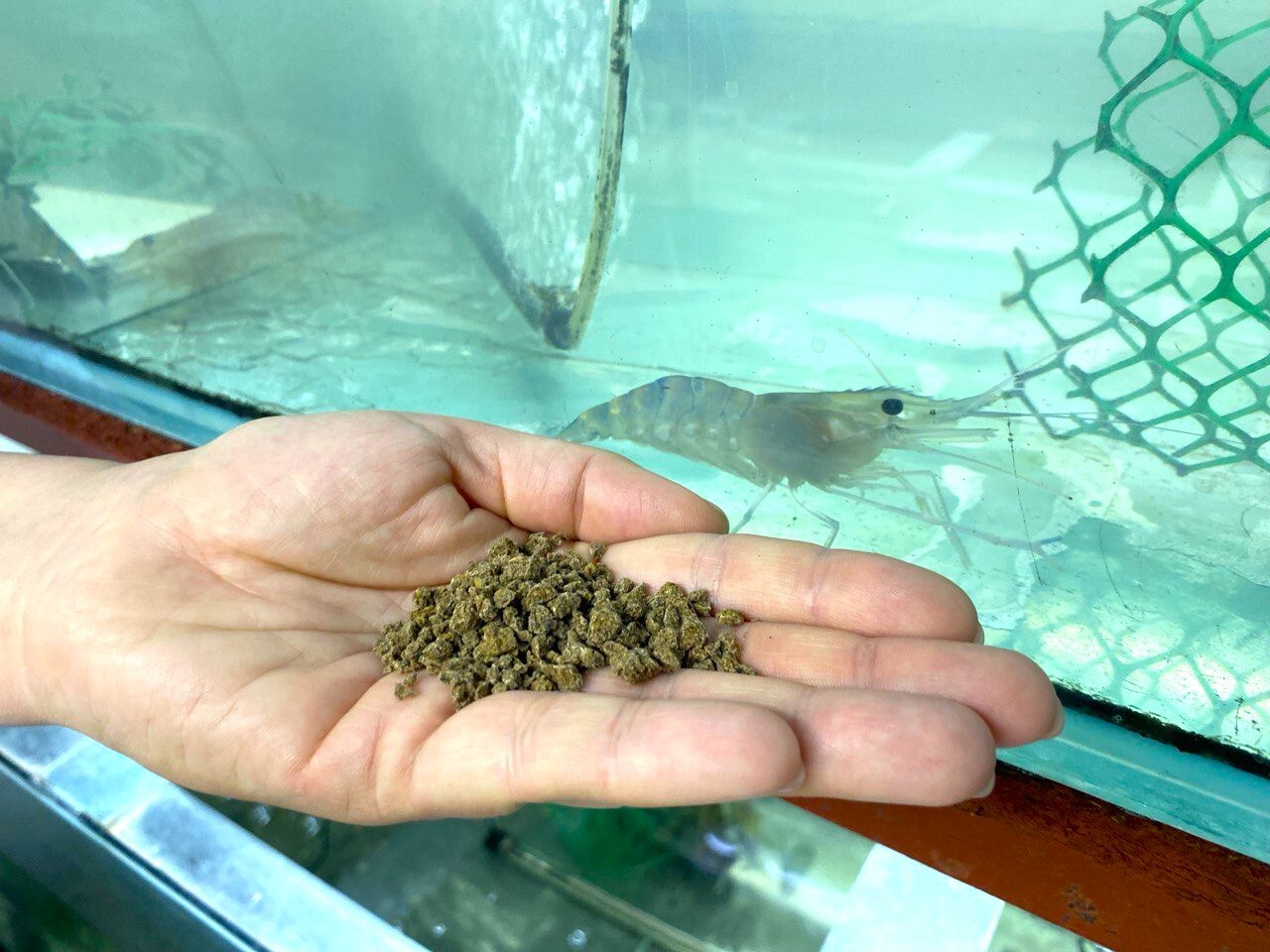Scientists of the laboratory "Sturgeon breeding and promising aquaculture facilities" of AGTU have improved fish food, making it more useful and production more efficient. This was made possible by the addition of an interesting protein, Gaprin.
"It’s peculiarity is that it is obtained from natural gas — methane with the help of microorganisms. Microbes are grown in a bioreactor on a specific substrate with the transmission of methane. Bacteria grow, develop, recycle methane, and multiply. The result is a biomass of microbes, which contains 60-70% protein.
Microorganisms grow 500 times faster than the most productive crops and 1000-5000 times faster than the fastest growing farm animals. Consequently, protein accumulates faster in bacteria, and also in large quantities. Such protein production, with the help of microorganisms, is economically more profitable than obtaining from plants or animals. Another advantage is that the composition of such a protein can be adjusted, that is, to create feeds with an optimal balance of amino acids and other nutrients for different fish species, which will positively affect their growth, development and reduce the risk of diseases," says Natalia Terganova, an employee of the laboratory, a graduate student at AGTU.
The shortage of fishmeal and other animal components necessary for fish feeding is growing every year. This makes it most relevant to research and use an alternative protein source for the production of animal feed. AGTU scientists use the protein Gaprin, obtained by microbial synthesis, in combined feeds for valuable aquaculture facilities: sturgeon, carp, Australian crayfish, freshwater shrimp to improve product quality.
The scientific supervisor of the project is the head of the laboratory "Sturgeon breeding and promising aquaculture facilities", Doctor of Biological Sciences, Professor Sergey Vladimirovich Ponomarev. The project received a grant from the Russian Science Foundation.
"It’s peculiarity is that it is obtained from natural gas — methane with the help of microorganisms. Microbes are grown in a bioreactor on a specific substrate with the transmission of methane. Bacteria grow, develop, recycle methane, and multiply. The result is a biomass of microbes, which contains 60-70% protein.
Microorganisms grow 500 times faster than the most productive crops and 1000-5000 times faster than the fastest growing farm animals. Consequently, protein accumulates faster in bacteria, and also in large quantities. Such protein production, with the help of microorganisms, is economically more profitable than obtaining from plants or animals. Another advantage is that the composition of such a protein can be adjusted, that is, to create feeds with an optimal balance of amino acids and other nutrients for different fish species, which will positively affect their growth, development and reduce the risk of diseases," says Natalia Terganova, an employee of the laboratory, a graduate student at AGTU.
The shortage of fishmeal and other animal components necessary for fish feeding is growing every year. This makes it most relevant to research and use an alternative protein source for the production of animal feed. AGTU scientists use the protein Gaprin, obtained by microbial synthesis, in combined feeds for valuable aquaculture facilities: sturgeon, carp, Australian crayfish, freshwater shrimp to improve product quality.
The scientific supervisor of the project is the head of the laboratory "Sturgeon breeding and promising aquaculture facilities", Doctor of Biological Sciences, Professor Sergey Vladimirovich Ponomarev. The project received a grant from the Russian Science Foundation.
